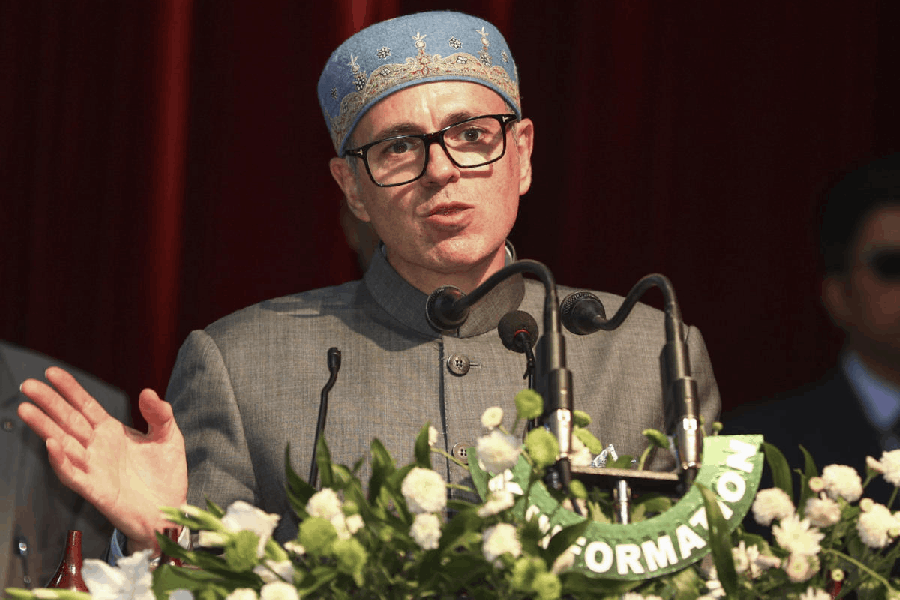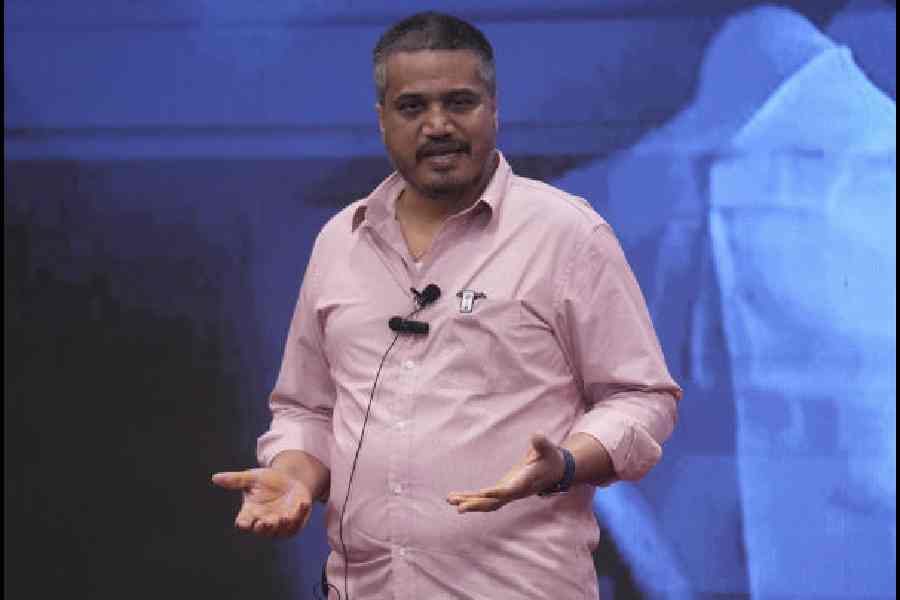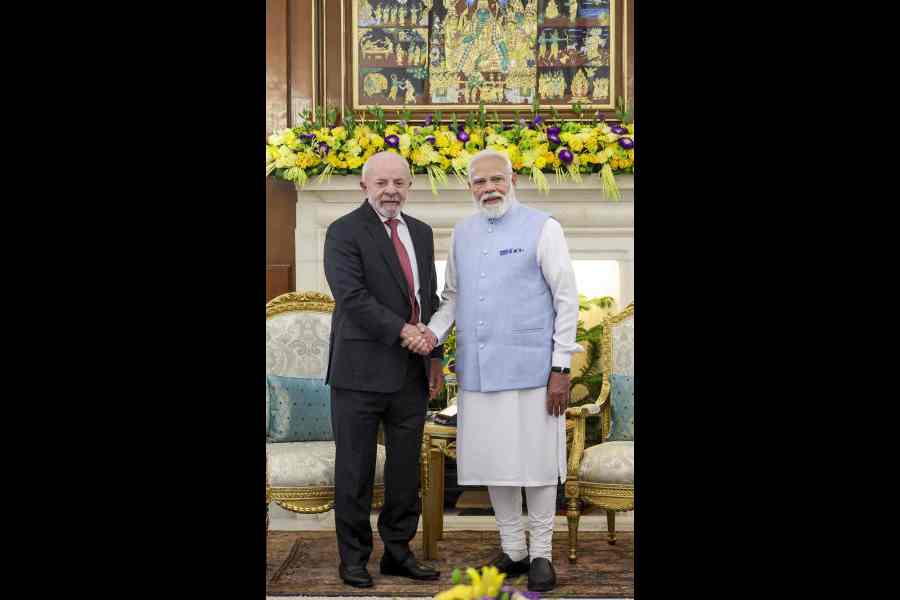Khariar, Feb. 20 :
Bonita Podho was sold for Rs 40 and a sari when she was a year into her teens. Fifteen years on, she is selling herself, part by part.
She has just gone through a tubectomy at a government family planning centre to qualify for a dole of Rs 120. With the money, she fed her blind husband, five emaciated children and an infirm mother-in-law. The surgery has left her debilitated.
It is a miracle Bonita Podho still survives. For the nation, she is Kalahandi's living advertisement for grinding poverty and government apathy. For herself, she is a wife and a mother.
Bonita's story so stirred Prime Minister Rajiv Gandhi in 1985 that he flew down to this outback with the promise that never again will a woman have to be sold so that a family might survive. Kalahandi hit the headlines and successive governments have introduced scheme after poverty alleviation scheme.
But Bonita Podho still has to sell herself.
She was barely 14 when her sister-in-law, Fanas Punji, unable to feed her children after her husband - Bonita's brother - deserted her, sold Bonita to Pati Podho, a marginal farmer in Amlapalli, 15 km from Khariar. Pati Podho bought her for his blind son, now Bonita's husband.
The 29-year-old woman epitomises what ails Kalahandi. No dearth of funds, but the poor are still starving. Bonita has nothing to eat and little to wear. 'We have no land, no money to buy rice. Most days, we go to sleep hungry and the children cry all night. Sometimes, our neighbours give us left-overs. Earlier, the children would not touch the smelly stuff, but now they eat everything.'
Kalahandi contributes nearly a quarter of the rice that goes into the Food Corporation of India's pool annually from Orissa.
Suffering from a swollen limb and chronic stomach cramps that have kept her bedridden since the tubectomy, Bonita has lost her job as an anganwadi worker that required her to trudge 10 km a day.
'After my fifth child was born six months ago, I became irregular as she often suffered from diarrhoea and I had to stay home to look after her. But after the operation, I could not go at all as I can barely walk now,' she sighed. A few days ago, the centre in-charge came and told her she was fired.
Bonita said her husband curses her for losing their only source of livelihood. The job was the only 'benefit' she received from the government since Rajiv Gandhi came a-visiting. 'What can I do? I underwent the operation because I was desperate to get the Rs 120 to buy some rice.'
With her mother-in-law and husband, Bonita moved to Badtunda nearly 12 years ago. She was driven out of Khatiguda by her husband's relatives after her father-in-law died. 'My uncles forced us to leave. They told me I was blind and unfit to till the land. They told me I should go to Raipur (in Madhya Pradesh) and beg with my family,' recalls Bidyadhar Podho, Bonita's husband, who cannot walk without a stick.
Bonita's family of eight lives in a small mud hut in the centre of the village with three smelly goats. Strewn inside the dark, windowless hut are a few utensils and some tattered clothes - the family's only possessions.
Tethered to a pole in the middle are the goats, chomping on jackfruit leaves. The mud floor is carpeted with their droppings and the damp air heavy with a stench.
'A relative left the goats with us after he migrated to Raipur two years ago. He asked us to keep them till he returned,' Bidyadhar explained. 'The animals are a burden because we have to feed and graze them. We have no separate space to keep the beasts, so we all live together.'
Bonita has two faded, torn saris - no blouse or petticoat - that she bought on credit from a shop in Bongaimunda three years ago. 'The businessman has been chasing us since then. He came a few days ago and demanded the price of nine saris as interest. He threatened to evict us if we did not pay up in a month,' she said.
The landless Podhos are among the dirt poor of Kalahandi but block officials told Bonita that the family did not qualify for the Rs 2-a-kilo rice meant for those below the poverty line.
Nearly 90 per cent of Badtunda's 120 families are as poor. Only 12 have got the 'certificate' that entitles them to cheap rice.
'They told me to go to the MLA to get a certificate. But we do not even know who the local MLA is or where he stays,' Bonita said.
Badtunda could not care less for politicians. For the last two years, its inhabitants have boycotted every poll - Lok Sabha, panchayat and last week's Assembly.
Most of its inhabitants used to survive by selling minor forest produce. But even that source of livelihood has been taken away since the state leased the nearby forests to private contractors.
The only road passing through the village is a dirt track. It is this road that Bonita has travelled in all of 15 years - a distance of about 10 km from Amlapalli where a Prime Minister promised a woman a life of dignity.
Bonita might probably still survive, left on her own, but she does not want to leave the husband she was forced to marry. 'Where will he go if I leave him? He is blind and totally dependent on me,' she said. 'Moreover, this is my own family. Where will I go without them?'
 Sunday, 22 February 2026
Sunday, 22 February 2026










